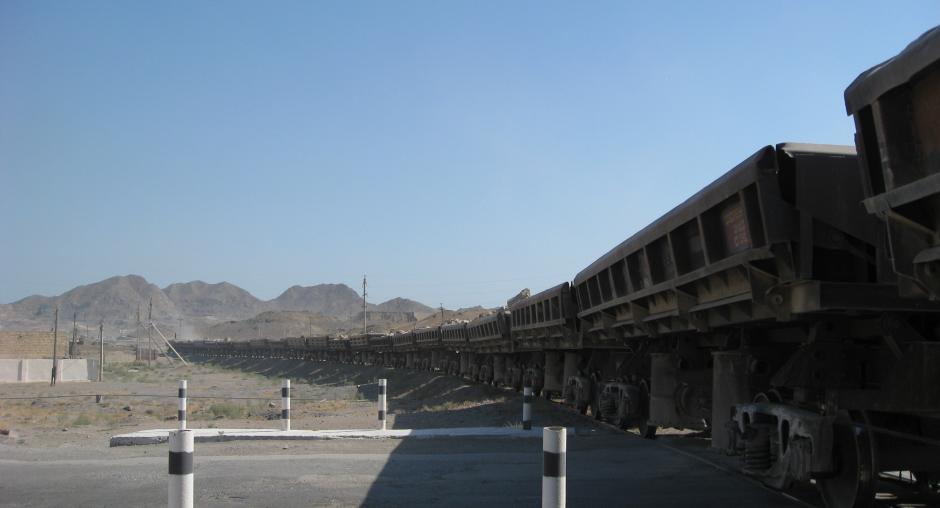OSCE-supported discussion on improving Euro-Asian inland transport connectivity concludes in Dushanbe

DUSHANBE, 10 June 2015 - Improving inland transport connectivity between Europe and Asia was the focus of a two-day OSCE-supported seminar which ended today in Dushanbe.
The seminar was part of the UN Economic Commission for Europe’s (UNECE) Euro-Asian Transport Links (EATL) project and gathered experts and policy-makers from Afghanistan, Armenia, Azerbaijan, Iran, Kazakhstan, Moldova, the Russian Federation, Tajikistan and Turkey as well as representatives of various specialized road and railway transport associations.
“Addressing specific transit transportation challenges of landlocked developing countries in Central Asia is high on the OSCE’s agenda,” said George Sand, Head of the Economic Unit at the OSCE Office in Tajikistan. “We continue to provide public and private sectors with targeted assistance, working on strengthening OSCE-supported Cross Border Trade Resource Centres on the Tajik-Afghan border into effective legal protection and training entities for traders and the business community as well as supporting the Pyanj Free Economic Zone in south-west Tajikistan by assisting the authorities to turn it into a full-fledged trade and logistics centre.”
The current third phase of the EATL project (2013-15) aims at making the Euro-Asian overland links more operational. It is focused on both prioritizing and financing infrastructure development projects as well as eliminating physical and administrative bottlenecks at border-crossings.
Participants discussed successful initiatives such as regular container block trains between China and Europe transiting through Central Asia and various ongoing and planned bilateral and regional transit and infrastructure projects. They also exchanged views on an OSCE-commissioned paper entitled “Transport flows and non-physical barriers along Euro-Asian transport links” which summarizes the key characteristics of current EATL cargo transport flows. It also considers factors such as costs and time and the composition of trade flows along Euro-Asian routes.
Miroslav Jovanovic from the UNECE Transport Division, added: “Euro-Asian transport links are not any more a myth but a reality used more and more by businesses. Overland rail transport between Asia and Europe has proven to be significantly faster than by sea but what is still missing is a high enough frequency and volume of such transport operations to make them even more economically profitable.”
The seminar was co-organized by the Office of the Co-ordinator of OSCE Economic and Environmental Activities (OCEEA), the OSCE Office in Tajikistan and the Ministry of Transport of Tajikistan. The OSCE has been providing political and practical support to the UNECE’s EATL project since 2006.
